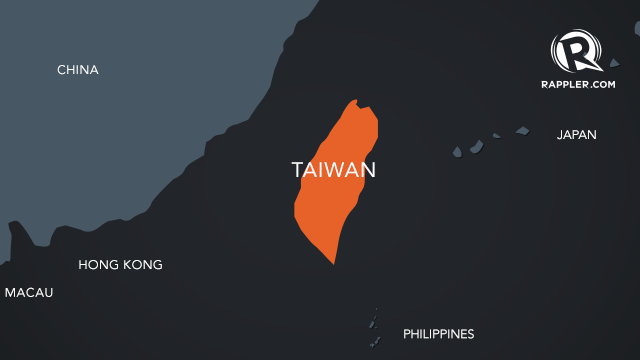SUMMARY
This is AI generated summarization, which may have errors. For context, always refer to the full article.

WASHINGTON DC, USA – The US State Department informed Congress on Wednesday, December 16, of a proposed sale of two warships to Taiwan as part of a $1.8 billion arms deal already angrily denounced by China.
The massive contract comes at a time of reconciliation between China and Taiwan – separated since 1949 – but also of worries by Washington that Beijing is “militarizing” part of the South China Sea.
David McKeeby, a State Department spokesman, said the $1.83 billion “defensive arms sale package” included two Perry-class Frigates, Javelin anti-tank missiles, TOW 2B anti-tank missiles, AAV-7 Amphibious Assault Vehicles and a range of other military equipment.
The US Congress has 30 days to raise any objections to the sale, otherwise it is considered approved.
Beijing, which regards Taiwan as a breakaway territory, said Tuesday, December 15, it “firmly opposes sales of weapons, military hardware or technology to Taiwan by any country in any form or under any pretext.”
“China strongly urges the US side to seriously realize the high sensitivity and severe harmfulness of arms sales to Taiwan, live up to its commitments and stop arms sales to Taiwan,” Chinese foreign ministry spokesman Hong Lei said.
State Department spokesman John Kirby stressed that the sale was in keeping with long-held American policy.
“As for our relationship with China, that remains an important relationship that we’re going to continue to work at,” he said.
“And because we are being consistent, there’s no other message that needs to be taken away from this, other than we take seriously our commitment to the defense needs of Taiwan.”
Relations between Beijing and Taipei have warmed under current Taiwanese president Ma Ying-jeou of the Kuomintang party. But China refuses to renounce the use of force should it declare formal independence.
China and Taiwan split at the end of a civil war in 1949.
The United States recognizes China rather than Taiwan, but remains a main ally and leading arms supplier to the island, providing a source of continued tension with Beijing.
“Taiwan is an inalienable part of China’s territory. China strongly opposes the US arms sale to Taiwan,” China’s Vice Foreign Minister Zheng Zeguang said, according to Xinhua.
US ‘one China’ policy
The US-Taiwan Business Council welcomed the news, but questioned why it had been more than 4 years since the last sale, and said the items were insufficient to meet an evolving threat from China.
“While China has deployed new fighters, submarines, and missiles during the last four years, the US has consistently refused to consider providing Taiwan access to similar platforms, or even aiding their indigenous development,” the group’s president Rupert Hammond-Chambers said in a statement.
McKeeby said the sale was in keeping with the 1979 Taiwan Relations Act, which commits the United States to providing sufficient weapons to maintain Taiwan’s ability to defend itself.
He added that there was no change in the United States’ longstanding “one China” policy.
Pentagon spokesman Captain Jeff Davis echoed the remarks, saying the sale was consistent with long-held policy.
“This is something we’ve done through successive administrations and we’ve had an unending support for Taiwan being able to maintain its defensive capability,” Davis said.
Republican Senator John McCain also praised the proposed sale.
“This decision is consistent with both the legal requirements of the Taiwan Relations Act and our national interest in helping the democratic government in Taipei preserve stability across the Taiwan Strait,” he said.
Washington angered Beijing in October when a US warship sailed close to artificial islets that China is building out into military bases in the South China Sea.
Washington has said China’s transformation of the geographical features in the Spratly Islands poses a threat to freedom of navigation in the critical area. – Nicolas Revise, AFP / Rappler.com
Add a comment
How does this make you feel?
There are no comments yet. Add your comment to start the conversation.